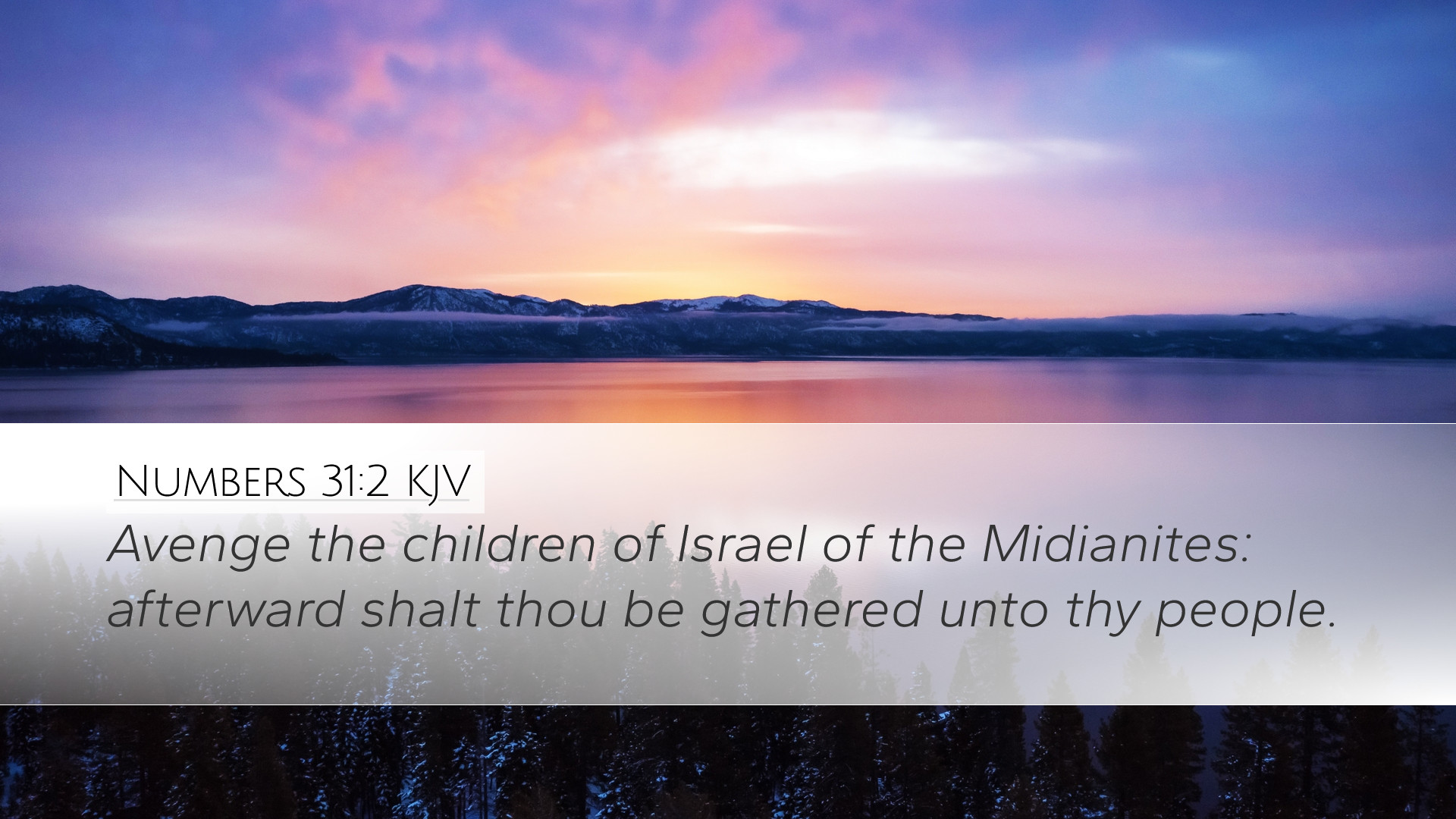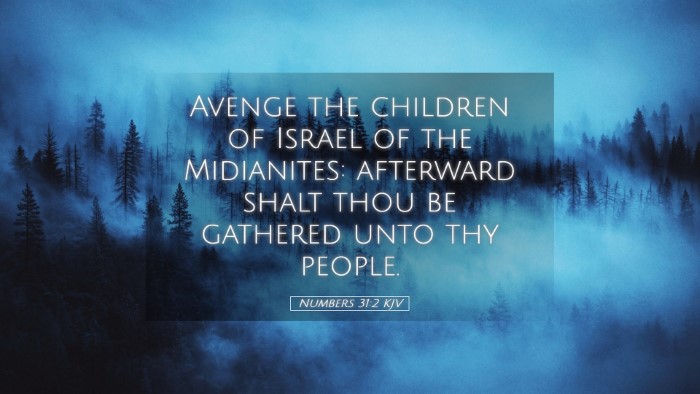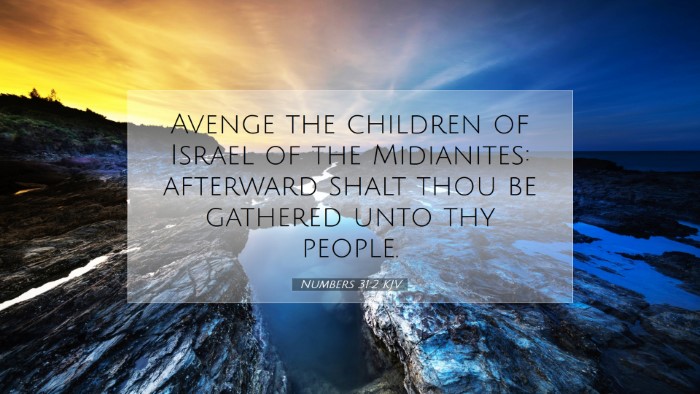Commentary on Numbers 31:2
Numbers 31:2 states: "Avenge the children of Israel of the Midianites: afterward shalt thou be gathered unto thy people." This verse is a pivotal point in the narrative of Israel's wilderness journey and carries profound implications for understanding God's justice, the role of leadership, and the nature of divine vengeance.
Contextual Background
The narrative in Numbers 31 occurs in the final stages of the Israelites' journey through the wilderness, just before they enter the Promised Land. After a long period of discipline and preparation, God commands Moses to take revenge on the Midianites, who had led Israel into idolatry and sexual immorality (Numbers 25). This destructive influence necessitated divine retribution, illustrating the seriousness of sin and its consequences.
Theological Insights
Divine Justice and Vengeance
Moses is commanded to avenge the Israelites, which raises questions about God's nature and His justice. Matthew Henry comments on how vengeance enacted by God through His chosen leaders reflects His holiness and righteousness. God's promise to punish the Midianites shows that He actively defends His covenant people. Henry notes that divine anger arises against those who oppose God's will and tempt His people to sin.
Moses' Leadership
Moses' role as a leader is highlighted in this passage. Albert Barnes emphasizes the importance of obedience to God's commands, showing that true leadership is rooted in following divine directives. This command serves as a test of Moses' fidelity to God and his commitment to the Israelite community. In a similar vein, Adam Clarke notes that Moses was not a mere figurehead, but rather a divinely appointed leader responsible for the spiritual and physical welfare of God’s people.
The Concept of Atonement
The act of avenging the Midianites serves a dual purpose: it is both a punishment for sin and an atonement for the transgressions of Israel. Clarke suggests that the Israelites' military action serves as a means of purifying the nation from the defilement brought upon them by the Midianites. This duality of vengeance and atonement presents a complex theological narrative that underscores God's desire for holiness among His people.
Lessons for the Modern Believer
The Seriousness of Sin
The passage compels believers to examine the seriousness of sin and its consequences. The call for vengeance against Midian reminds us that sin cannot coexist with holiness. As Barnes writes, sin’s repercussions extend beyond individual behavior; it can lead others astray and result in communal judgment.
God’s Sovereignty
This verse reveals God's absolute sovereignty over nations and His authority to utilize human agents to accomplish His divine purposes. Through Moses, God orchestrates judgment against infidelity, demonstrating that He holds both individuals and nations accountable for their actions.
Faithfulness to God's Command
Modern readers can find encouragement in the steadfastness of Moses' response to God’s command. His willingness to execute divine justice serves as a model for Christians today in their own calls to spiritual vigilance and observance of God’s commandments. Henry reiterates the necessity of unwavering faithfulness to divine instructions, regardless of personal cost.
Conclusion
Numbers 31:2 stands as a stark reminder that God's name is jealous and fervent against all that corrupts the purity of His people. This verse not only emphasizes the severity of divine judgment but instructs leaders and believers to uphold righteousness amidst a world rife with moral compromise. Engaging with this text allows pastors, students, theologians, and scholars to grasp the depth of God's character and the expectations He holds for His followers.


